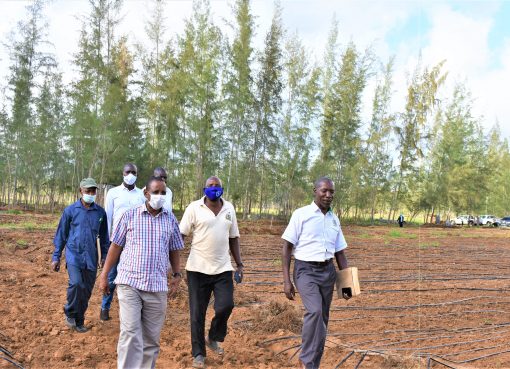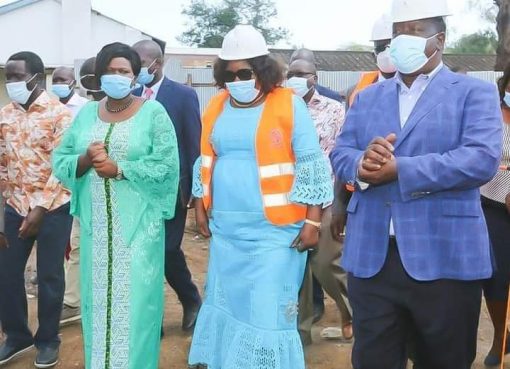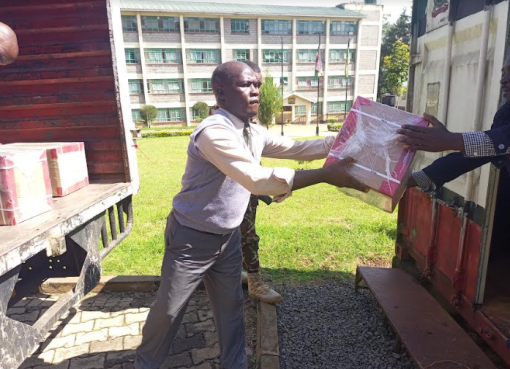The Covid-19 pandemic has come with a lot of negativities with many paying the ultimate price by losing their lives. Others have lost their livelihoods and sunk into depression leading to separation among many families.
When one mentions the word Covid-19, it is almost an impossibility to think of anything positive about it. But according to the Ministry of Health Chief Administrative Secretary (CAS) Dr. Mercy Mwangangi, in the health sector, Covid-19 has brought with it significant improvement for instance, because of various preventive measures such as hand washing and social distancing, hygiene-related and respiratory diseases have reduced significantly.
Dr. Mwangangi said that communities have also started taking responsibility and participating in matters of health. “We are indeed very glad that more Kenyans are taking their overall health more seriously,” said the CAS.
Speaking on Thursday at Parliament grounds during the National Prayer Breakfast, Dr. Mwangangi said that they have seen a significant increase in hospital capacity in terms of facilities and health workers. “What this means is that once the pandemic is over, Kenyans will be left with improved primary healthcare facilities. It will no longer be necessary to visit referral hospitals for primary healthcare,” she noted.
The CAS says there has been improvement in the capacity to handle infectious diseases, having invested in laboratory infrastructure and making significant strides in telemedicine and e-health. “Our capability to respond to a pandemic of this magnitude has been tested and it is fair to say that if it ever happens again, Kenya will be more than ready,” she said.
She said that this year’s National Prayer Breakfast is a reminder of God’s faithfulness during times of crisis. “When we announced the first Covid-19 case in Kenya, the country was thrown into great fear. There was a lot of panic spreading because we had little information regarding the virus,” Dr. Mwangagi said.
She said the effects could be seen even before the disease spread as Kenyans emptied supermarkets and pharmacies in a bid to arm themselves for a possible lockdown as happened elsewhere in the world. “As the reality of what the pandemic meant hit us, we were faced with the challenge of stopping the spread, a journey that has brought us here,” explained Dr. Mwangangi.
The CAS added that thanks to Covid-19, e-commerce is thriving as most businesses now have their products and services available online. Corporates have also had to adapt as many employees now work from remote locations. “The perspective that productivity only happens when one is in the office has shifted. Now we know that you can work from anywhere and still get the job done. Indeed, we have learnt that we do not have to be together physically to remain connected or productive,” she said.
She said Kenyans have further had their conscience awoken to the need for local self-sufficiency. “Consequently, where we lacked locally-produced Personal Protective Equipment (PPE’s), we now have enough for our use and for export. Where we did not have locally produced vaccines, we are now working on our own capacity to produce these in the next year or so. Where we did not have enough ICU and isolation beds, we now have them and where we did not have adequate human resources, we now have hired many more at both levels of Government. I must commend the various parties that have initiated private-public sector collaborations that have allowed us to make such significant progress,” said Mwangangi.
She urged Kenyans that even as they face the possibility of a fourth wave, they should remain steadfast in following the laid down protocols by the Ministry of Health. “We have already embarked on the vaccination exercise and are expecting to roll out the 2nd vaccine doses in June. This will go a long way in ensuring that the surge in infection is less serious than previously seen,” she said.
By Joseph Ng’ang’a





